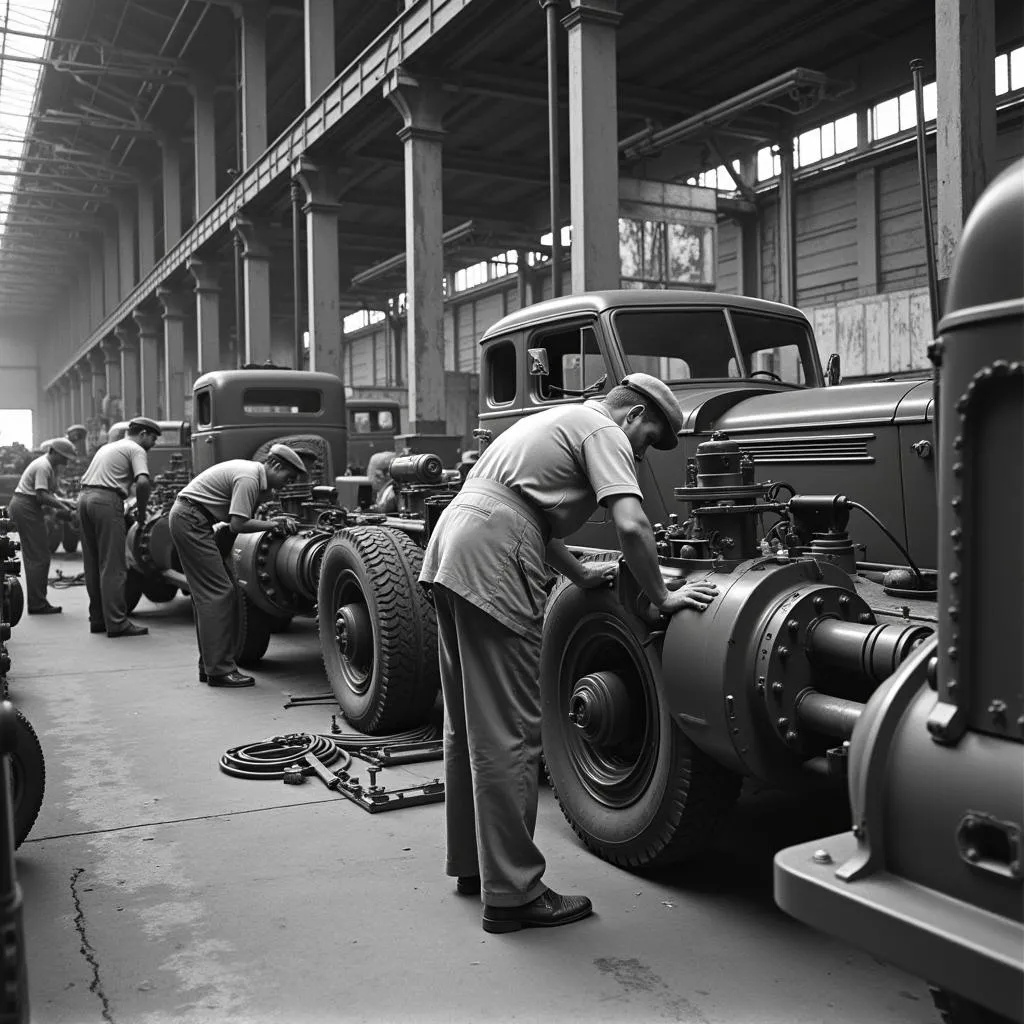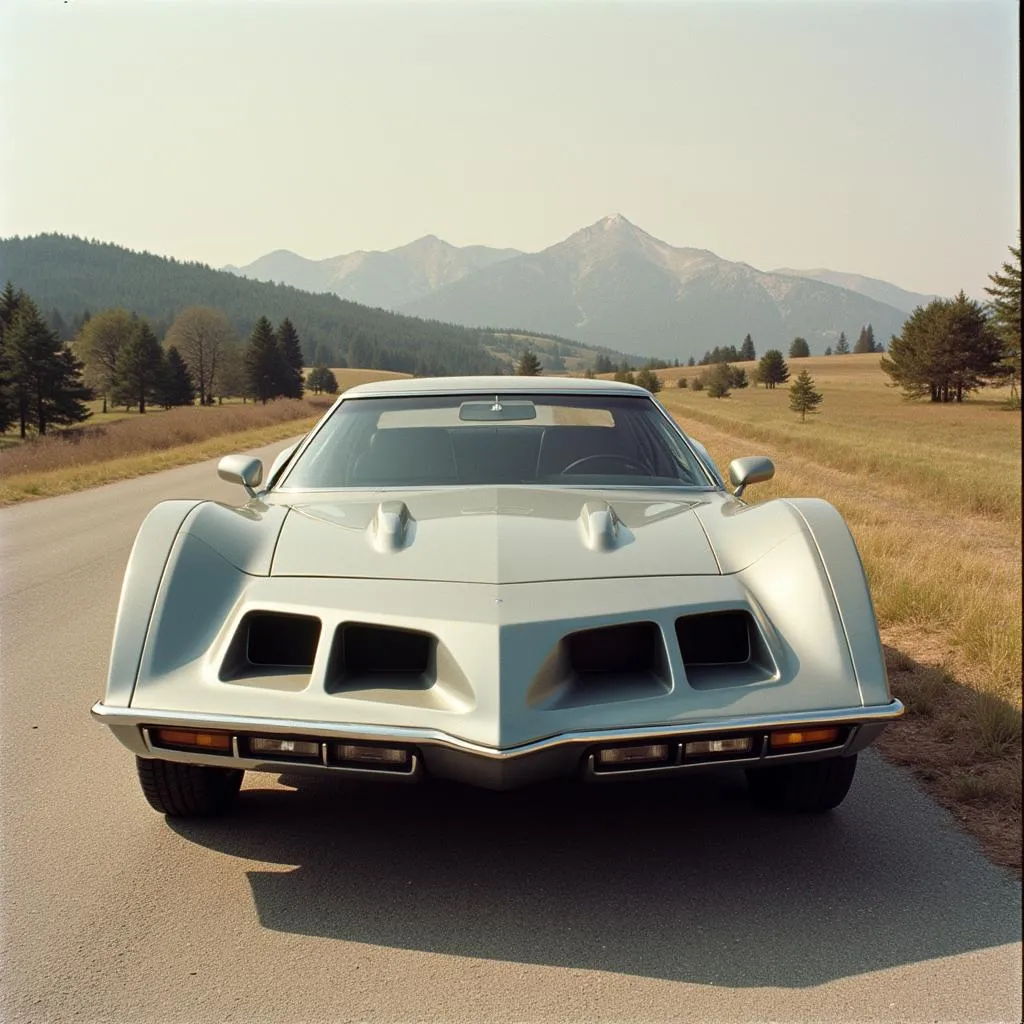Rockwell Cars: A Blast from the Past
Rockwell Cars might not be a household name like Ford or Chevrolet, but for those in the know, they evoke a sense of nostalgia and represent a fascinating chapter in automotive history. While the company itself had a relatively short lifespan, its impact on the industry and the unique features of its vehicles continue to intrigue car enthusiasts and historians alike.
Let’s take a trip down memory lane and explore the story of Rockwell cars, their rise, their innovations, and ultimately, their place in the vast tapestry of automotive history.
The Rockwell Story: From Military Might to Civilian Wheels
The Rockwell International Corporation, the company behind Rockwell cars, wasn’t born in the heart of Detroit like many of its contemporaries. Instead, its roots were firmly planted in the world of aerospace and defense. Founded in 1919 by Willard Rockwell, the company initially focused on producing axles for trucks, a testament to its early engineering prowess.
 Rockwell military truck axles
Rockwell military truck axles
World War II proved to be a turning point for Rockwell. The company’s expertise in heavy-duty components was called upon to support the war effort, and it soon became a major supplier of aircraft parts, including landing gear and transmissions. This experience in building for extreme conditions and demanding performance standards would later influence their approach to automobile manufacturing.
Entering the Automotive Arena: A Focus on Innovation
By the 1960s, Rockwell had established itself as a leader in technology and engineering. With a desire to diversify and capitalize on the booming American car market, the company made the bold decision to venture into automobile production.
Rockwell’s approach wasn’t to simply replicate what others were doing. They aimed to leverage their engineering expertise to create cars that were not only stylish but also pushed the boundaries of innovation and performance. This commitment to pushing the envelope was evident in several key features that became synonymous with Rockwell cars.
Turbine Power: A Glimpse into the Future
One of the most notable innovations Rockwell explored was the use of turbine engines in their cars. While this technology never made it to full-scale production, their experimental turbine-powered cars generated significant buzz and showcased the company’s forward-thinking approach.
 Rockwell Turbine Concept Car
Rockwell Turbine Concept Car
Imagine a car that ran on jet fuel and could accelerate with breathtaking speed. That was the promise of Rockwell’s turbine technology. These cars were incredibly advanced for their time, boasting impressive power-to-weight ratios and the potential for reduced emissions.
“Rockwell wasn’t afraid to take risks,” says automotive historian Emily Carter. “Their turbine cars were a testament to their willingness to explore unconventional ideas and challenge the status quo of the automotive industry.”
Safety First: Pioneering New Standards
Beyond their exploration of turbine engines, Rockwell cars were also known for their emphasis on safety. They were among the first manufacturers to incorporate features like seat belts, padded dashboards, and energy-absorbing steering columns as standard equipment. These innovations, which are commonplace today, were considered groundbreaking at the time and reflected Rockwell’s commitment to passenger well-being.
The End of the Road: A Legacy Remembered
Despite their technological advancements and commitment to safety, Rockwell cars faced an uphill battle in the marketplace. The established giants of the American auto industry, with their vast production capabilities and established dealer networks, proved to be formidable competitors.
By the early 1970s, facing financial challenges and a changing automotive landscape, Rockwell made the difficult decision to cease automobile production.
While their time in the spotlight was brief, Rockwell cars left an undeniable mark on automotive history. They served as a reminder that innovation doesn’t always come from the biggest players and that even companies with a relatively short production run can contribute significantly to the advancement of technology and design.
Conclusion: Rockwell’s Enduring Impact
Though Rockwell cars are no longer in production, their legacy lives on. Their innovative spirit and dedication to pushing the boundaries of automotive technology continue to inspire engineers and designers today.
For those fortunate enough to own a Rockwell car, it’s a tangible connection to a bygone era of automotive history, a time when possibilities seemed endless and the open road beckoned with the promise of adventure.
